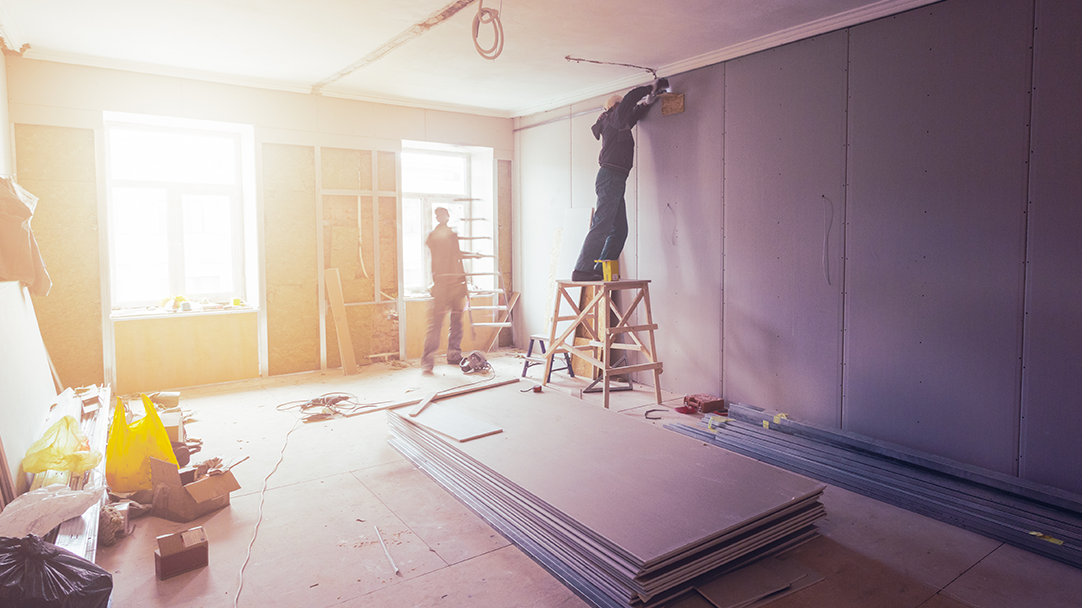Five tips for success at a property auction
In this article, we are going to give you five tips for being successful when buying a property at auction.
How to buy a property at auction?
Auctions are one of the few places that offer the opportunity to find profitable commercial or residential bargains. They come with a considerable amount of benefits for a property investor – they provide quick sales, a relatively simple buying process and the certainty of your purchase.
Traditionally, bidders at property auctions were regular investors, whereas now there are more and more first-time buyers and entrepreneurs contemplating buying properties at auction, with many individuals keen to find out more about the process. The atmosphere at an auction is unmistakable and not just because of the property investment opportunities. There is the excitement of bidding, the unknown of whether or not you’ll be successful, and the buzz of competing with other investors.
However, it’s not all fun and games, mainly if you are underprepared, because there is a good chance you could overspend, buy a property not worthy of investment or feel rushed into a decision you aren’t comfortable with. Before diving in headfirst to a bidding war, we recommend following our five top tips for success at property auctions below.
1. Set a maximum bid amount and stick to it
This may seem like an obvious one, but when you get caught up in the excitement of a bidding war, it can be easy to lose sight of your top-line budget. Make sure you stick to your maximum at all times, even if you get caught in a head-to-head bidding war. It is better to lose the bid than overpay for a property that could cost you in the long-run. Generally, properties sell above their guide price. These prices are there to indicate the minimum expected price at the end of the action. With that being said, if you are drawn into a bidding war, this can be the difference between making thousands on a sensible purchase compared with spending more than you ever intended on a property which will impact your profits, sometimes causing them to go into the negative.
To avoid this as much as possible we recommend you research each property lot, do some simple budget plans and then set a maximum budget for each property, so you are not tempted to go over-budget.
What’s the advantage of doing this? A lot of the other attendees will not have the foresight to set a maximum for each property lot. By establishing yourself clear limits, you almost guarantee profits from any purchase you make.
2. Check out the property before bidding
Low auction property prices are always tempting, but generally speaking, there is always a good reason for the lower price point. Huge renovations are often required to make these cheaper properties habitable – sometimes involving structural alterations or reinforcements. For this reason, visiting the property in advance, and getting quotes and advice from experts is essential.
Going to see the property will give you an insight into the area and the types of people that may want to rent or buy the property from you. It happens far too often; people buy a property only to find it had a low price point because there is a lack of buyer/renter interest or it is in an unfavourable location.
Organising a surveyor or knowledgeable builder to accompany you to a viewing will give you a better idea of the work required to make the property rentable or sellable. A lot of the available properties will be in poor condition and will require time and effort to bring back to a liveable state. If you are looking to move in, rent or sell quickly, then you may wish to reconsider buying a property from an auction. By bringing a builder or surveyor, you will be able to compare what is being said about the property in the auction materials with the reality, giving you peace of mind that what is being officially reported is legitimate. Additionally, you should be able to get an idea of the costs involved to renovate.
If the appropriate documentation is not available for the property before the auction takes place, you may consider contacting the vendor’s solicitor. It is important to remember that you, as the prospective buyer, are expected to have full knowledge of the documentation and the facts. Neither the seller or the auctioneer will be liable for any subsequent problems.
What’s the advantage? Some people will go to an auction having never looked at the catalogue of lots while others may have put in the bare minimum amount of research. This can turn bidding on well-researched properties into a game of roulette with hundreds or thousands of pounds being at stake.
3. Make sure you have the money
Again, this may seem like another obvious one, but you need to consider how quickly an auction sale will complete and make sure you have the funds in place. Inexperienced investors can sometimes be shocked at the speed everything goes through and will occasionally find themselves short, trying desperately to pull their funds together in time.
When you successfully win an auction property, you are legally obliged to pay for it and usually you will have to pay 10% of the sale price as a deposit. Then within 14-28 days, you will typically be expected to complete your financing. If for any reason you miss the closing date you risk losing your deposit. It is worth checking with the auctioneer beforehand about how property can be paid for. Make sure you bring your ID along on the day.
Remember the guide price is only there as a reference point. It shows the lowest expected sale price and can change any time before the auction day takes place.
What’s the advantage? You can anticipate how much you can pay for a property which will stop you from wasting time researching a property that you won’t be able to pay for in time. It will also safeguard you against losing thousands if you only put down a deposit for the properties you can afford.
4. Check the legal pack
Don’t get stuck. Do your research and read up on the technicalities of any purchase. Once the hammer drops, there is no going back, so make sure you know the facts. A legal pack will give you all the relevant information for why the property is up for auction, why it might not be possible to go on the general market and any legal issues affecting the building or any reason the property may not be insurable or un-mortgageable etc. The legal pack helps you to understand precisely what you are buying and enables you to ensure the reality doesn’t differ from what may appear to be a bargain. They can also assure you that there are no current tenants and that the property size is what you expect.
The pack should also confirm whether there is a buyer’s premium payable to the auctioneer as well as any survey fees, conveyancing fees and the cost of stamp and duty land tax.
What’s the advantage? Carefully examining the legal packs means you know exactly what you are signing up for if you purchase the property. It may be worth letting a professional look over the legal pack on your behalf, which they may charge you for. If you are serious about buying a particular property, then we advise you factor this into your upfront costs.
5. Don’t forget about Stamp Duty & VAT
Another pitfall for inexperienced investors at property auctions is getting lulled into thinking the bid price is the only payment required. This is not the case!
Make sure you are aware of your responsibilities in terms of Stamp Duty and any potential VAT that will require payment. Understanding this beforehand can work in your favour as being aware of these costs allows you to add it to the list of fees before committing to a purchase. It also means you won’t be caught off guard by unexpected expenses.
Some impressive incentives and tax breaks are available when converting commercial property for residential usage, so it is worth knowing about them. Looking into the flat conversion allowance, it may also be worth checking if you can claim the VAT back for the conversion costs.
Buying a property with a “Transfer of a Going Concern” (a property being sold with a current tenant) may also reduce your VAT costs. As the buyer, you would need to contact HRMC before the date of transfer. This can be slightly complicated by the fact you don’t know if you will be the highest bidder, but if it is possible, then you can save yourself a considerable amount of money.
What’s the advantage? Being prepared for all the finer details when spending at an auction will help you and your bank balance in the long term when you do make a purchase.
As with most things, there are definite advantages and disadvantages when buying property from an auction. It is essential to weigh up the risks and to investigate the property thoroughly, whether it is residential or commercial, before committing to the sale. Research is crucial before making a serious bid as you need to make sure you have the money ready to go within a short time frame; the property is worth the price advertised, and you can make the kind of profit you are looking for on the property. As with all property investment, research is vital.
If you would like to know more about how Nichol Smith Investments could help you with investing in property, click the link below to book a call with us.



